In this science activity, you can put a balloon into a candle flame without it popping! How is that possible? It’s all about heat transfer.
A balloon filled with air will pop when it gets too close to a flame as the heat from the candle warms the balloon’s skin and weakens it. The trick to making an unpoppable balloon is to add water to it. The heat from the flame heats the water instead of the balloon, which then doesn’t burst.
If you thought putting a skewer through a balloon was impressive, the unpoppable balloon science trick will blow your mind!
You’ll need
Two balloons
Water
Safety goggles
Candle
Matches
Plate
This activity requires adult supervision.
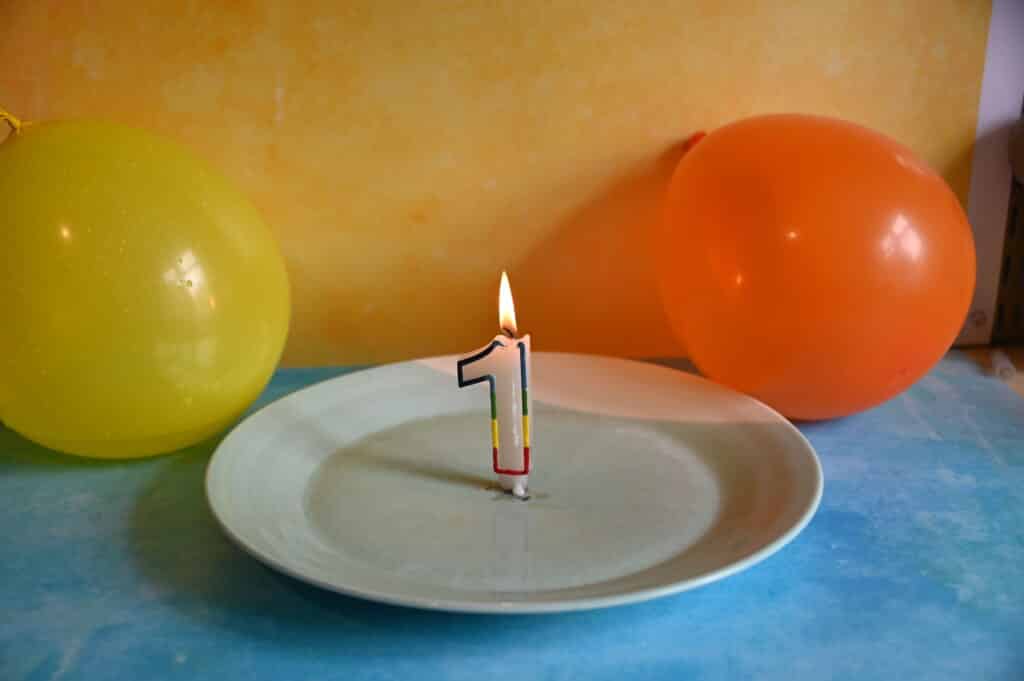
Unpoppable Balloon Instructions
Put safety goggles on.
Light the candle and place it safely on a plate. A tea light candle works well.
Blow up the first balloon and slowly lower it over the lit candle. The balloon will pop.
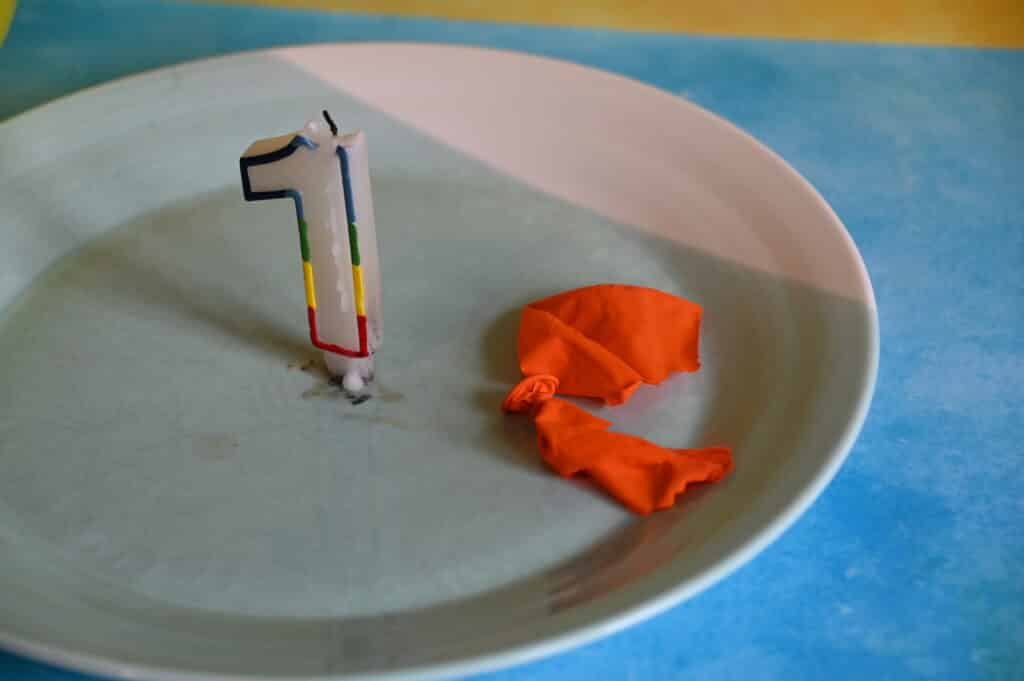
Half blow up the second balloon and add about 200ml of cold water. Blow it up to the same size as the first one.
Lower the balloon over the candle again. The balloon should be able to touch the flame and not pop.
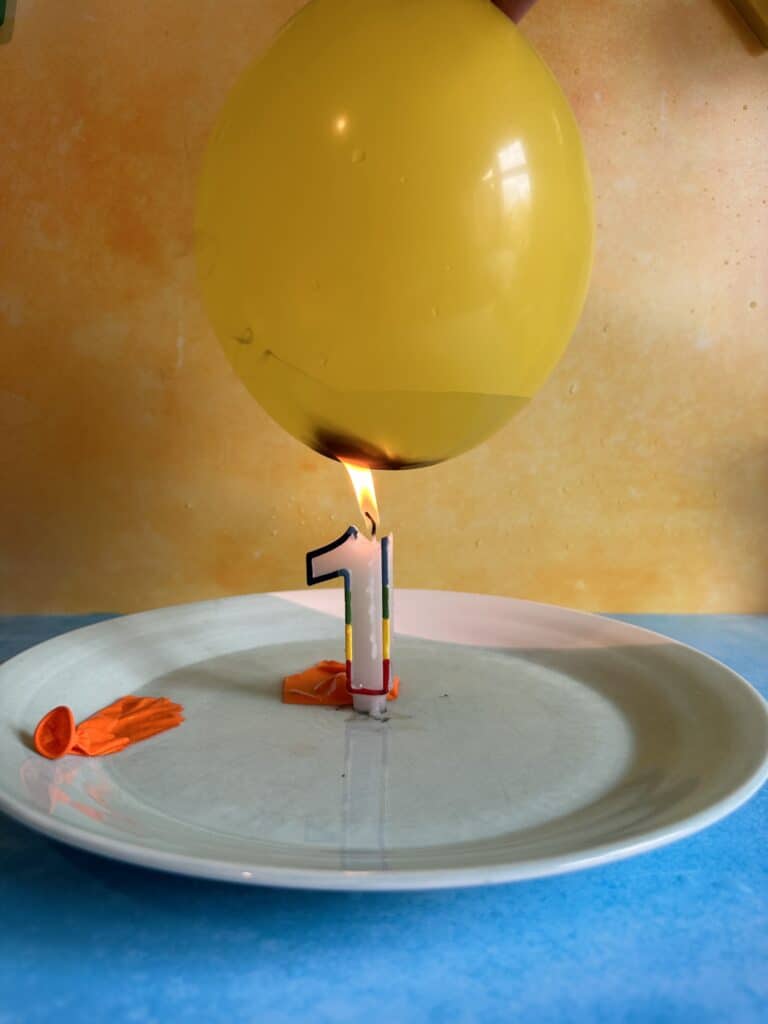
Why does the balloon containing water not pop?
It’s all about heat transfer. When the first balloon moved near the candle, it popped because the heat from the candle weakened the balloon skin, which then burst.
The balloon containing water didn’t pop, as the water absorbed the heat energy from the candle, not the balloon skin. Thanks to the water, the balloon didn’t get hot enough to burn. Water is much better at absorbing heat than air.
The black substance on the bottom of the balloon containing water is carbon from the candle flame.
Make it an investigation.
To make this activity an investigation, think of a variable to test and a question to answer. Some ideas are:
- How much water is needed to stop a balloon popping?
- Does a bigger balloon burst more easily than a small balloon?
- Does the time a balloon can sit in a flame increase if more water is added?
More science experiments using a balloon
Find out how to burst a balloon with an orange.
Learn about burps with burping balloons.
Design and build a balloon powered car.
Make a balloon rocket with Science Bob!
Discover how a hot air balloon works.
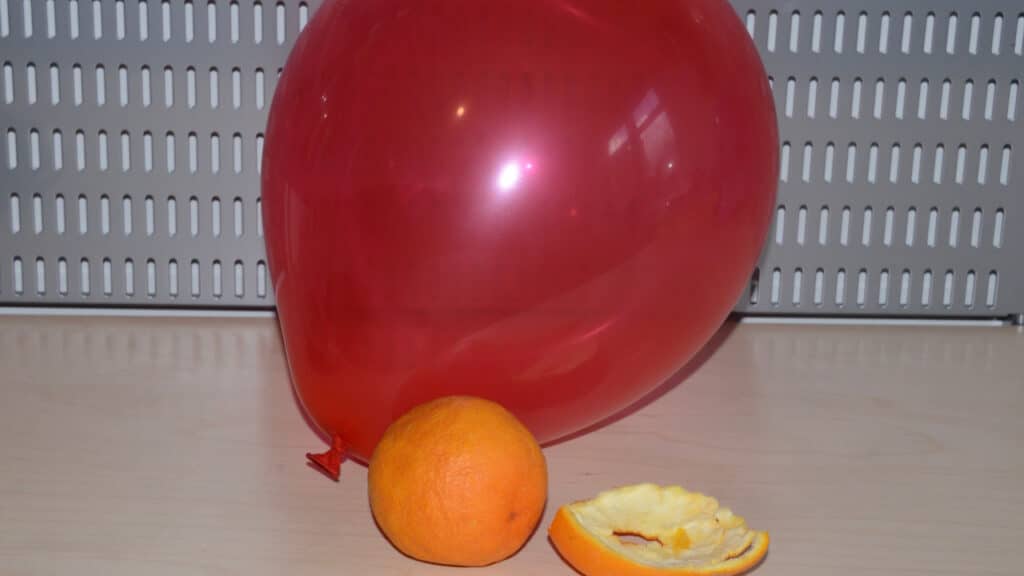
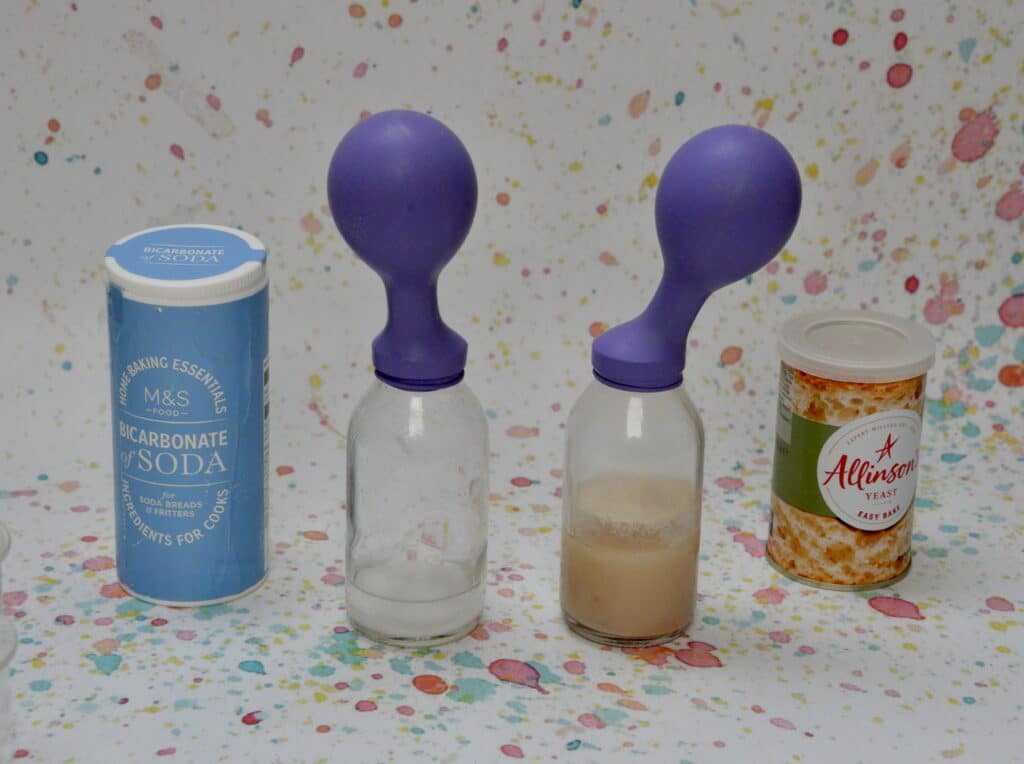
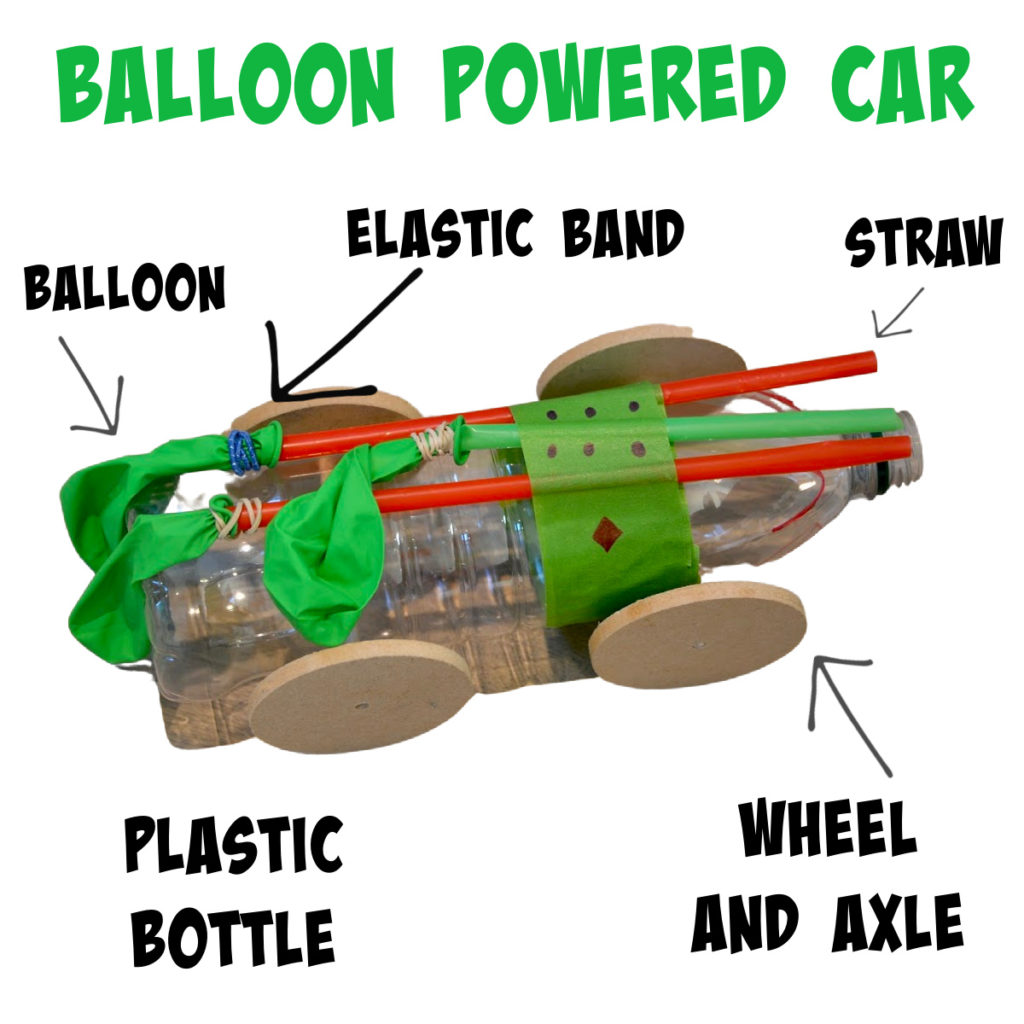
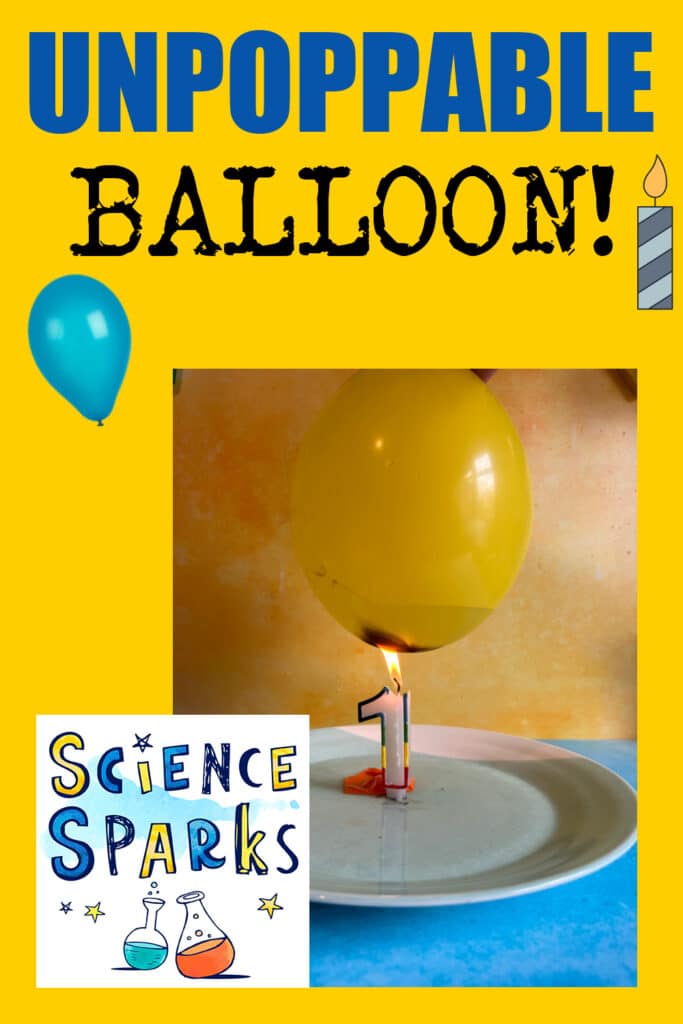
Last Updated on April 18, 2024 by Emma Vanstone


